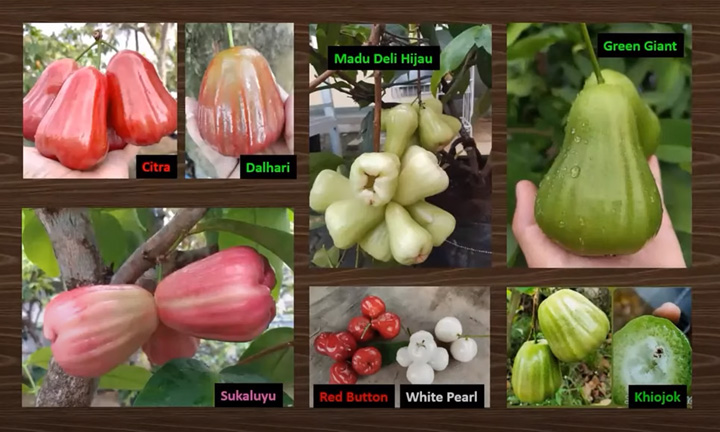Wax/Rose apple (Syzygium sp.), also known ‘bell fruit’, ‘wax jambu’ and sometimes ‘water apple’ is an attractive, refreshing, crispy with mild sweetness tropical fruit native to Southeast The fruit is generally grown in backyards, in mixed orchards and sometimes as a monocrop in small orchards in China, Thailand, Malaysia, Indonesia, Philippines, Taiwan and Vietnam. The fruit, to a lesser extent is also grown in Australia, the Caribbeans, Florida and parts of Central America. Despite its adaptability, relative popularity and nutritional benefits, wax/rose apple remains an underdeveloped crop due to factors including availability of suitable varieties, seasonal and limited supply chains, inconsistent consumer demand due to availability of other fruit types, pests and diseases challenges, short shelf life and postharvest issues.
International Tropical Fruits Network (TFNet), in continuing its series on the development of minor tropical fruits, organized a webinar on ‘Exploring Opportunities in expanding production, consumption and market of Wax/Rose Apple’ on Tuesday, 17 December 2024.
The objectives of the webinar were:
- To share the experience of successful wax/apple producers in the different countries.
- To showcase current research findings on wax/rose apple’s best farm practices, and postharvest handling and innovations to enhance its productivity and economic value.
- To assess wax/rose apples market potential
- To explore value addition opportunities in product development, including processing and health benefits.
- To enhance networking opportunities among researchers, producers, academicians, government agencies, agribusinesses and other stakeholders to further develop wax/rose apple.
Altogether, 116 participants from 11 countries attended the event, mostly from Malaysia (76), Indonesia (15), Bangladesh (11), India (6) and Vietnam (5). Others were from Australia, China, Fiji, Nepal, Pakistan and Philippines. Those from government agencies represented about 33 % of the participants, while 16 % were from research institutions, 15 % from universities, and 5 % from the private sector.
Three speakers from Indonesia, India and Malaysia shared their insights on the development of wax/rose apples in their respective countries. Dr. Mohamed Riza Tirtiwanata, a fruit consultant from Indonesia presented on ‘’Varietal diversity and efforts to enhance production and market of wax/rose apple in Indonesia’. Dr. Reza gave a summary of the various indigenous and introduced wax apple varieties in Indonesia and described the advantages of using containerized fruit plant growing system as another option of growing the fruit. India was represented by Dr. Anuradha Sane, principal scientist, Fruit Crops Div. ICAR-IIHR, who presented on ‘Efforts to enhance production and market of rose apple in India’. Dr. Anuradha described the farm practices for this popular local fruit and efforts to boost its consumption and market. Mr. Christopher John Biai, Director of Crop Industry Development Division, Department of Agriculture, Malaysia gave a comprehensive presentation on wax apple cultivation, development and market in Malaysia. Despite popularity and relatively high retail prices, Mr. Christopher cited attraction to other fruit types such as durian has led to decline in planted areas. The webinar continued with additional notes from SOFRI, Vietnam plus some additional points provided by TFNet advisor, Yacob Ahmad before the Q and A and discussion session.
All speakers concurred that for the fruit to expand, a few but very suitable and highly demanded varieties, whether introduced or selected from the indigenous varieties, should be developed, alongside improvements in farm practices, management of fruit flies and postharvest handling and packaging. A containerized planting system can also be an alternative to popularize the fruit in urban and suburban areas, plus its use as an agrotourism attraction.
Videos of the webinar session can be viewed at:
https://www.youtube.com/playlist?list=PLKxiDl17HlWu3m_Nh6QNmINBi70s6oqwD

